15, October 2018
France: Macron cabinet reshuffle delayed due to severe floods 0
Two weeks after the hasty departure of France’s interior minister Gérard Collomb, Emmanuel Macron’s long-awaited government reshuffle is expected to be announced Monday. The president and his prime minister have been weighing the reshuffle for a few weeks, following the departure of three ministers since late August, including Interior Minister Gérard Collomb and Environment Minister Nicolas Hulot.
Several ministerial posts could be affected. Given the recent spate of resignations, observers have questioned why the reshuffle has been so long in coming. Ministers had been expecting the rejig before a cabinet meeting last week. But the Élysée said it would not happen until Macron’s return from a visit to Armenia that Friday.
Macron, whose authority has been challenged over Collomb’s departure, said he wanted to take his time.
“When you want to work with people, you must take the time to get to know them, to make sure that we think the same thing and to check all the elements,” Emmanuel Macron told FRANCE 24 during an interview on Friday in Armenia, where he was attending the international summit of French-speaking countries.
“You need to make these decisions calmly, methodically and at the right pace. The government is at work. There are no empty seats. Things are moving along,” he said.
Macron, 40, faces multiple challenges in carrying out a significant revamp. Not only must he try to maintain the left-right balance that he made a hallmark of his centrist movement, but also find strong candidates from among a relatively shallow and inexperienced pool of loyalists.
“The president wishes to take all the time necessary to draw up a team in a calm and professional way,” the Élysée Palace said in a statement announcing the reshuffle’s delay.
Government spokesman Benjamin Griveaux, a member of Macron’s inner circle, denied the Macron administration was in disarray.
“There is no division in the government or the parliamentary majority on the political line we are pursuing,” he said.
Macron’s popularity has sunk in recent months as frustration has welled up over a leader many voters see as arrogant and the architect of policies that favour the wealthy.
Opponents branded the reshuffle a “tragi-comedy” that exposed a shortage of political experience in the ruling party.
Macron’s République En Marche party, though, holds a commanding majority in the National Assembly (lower house), his presidential term runs until 2022, and the opposition is divided, meaning he faces no immediate threat.
Prime Minister Édouard Philippe told baying opposition lawmakers there was “no anxiety, no restlessness” inside an administration committed to social and economic reform including an overhaul of the pension and unemployment benefit systems.
A senior Élysée official said the reshuffle process was taking longer than expected because Macron had redrawn the political landscape and brought in faces from outside politics.
“We’re no longer in an age where because someone has 15 years of service under their belt they deserve to become a minister,” the official said.
Diminished pulling power
Macron’s rivals are not convinced.
“Macron’s ability to attract is pretty weak,” hard-left lawmaker Alexis Corbière told BFM TV. “Many are asking themselves: ‘What should we do in this mess?’ They don’t want to be finished politically by becoming a minister in a government that risks descending into crisis in less than a year.”
In winning power in May 2017, Macron and his En Marche movement demolished France’s traditional mainstream parties. He went on to poach senior politicians from both poles and draft in newcomers to build a government “neither of the right nor left”.
But as the lustre has worn off his young presidency, and the impact of early reforms to the labour code and tax rules have yet to filter through, rivals have sought to depict an increasingly isolated figure with diminished star power.
“That they cannot replace the interior minister highlights chaos inside the Macron administration,” said Valérie Boyer of the centre-right Les Républicains party. “Either there’s a lack of names or a lack of candidates in whom the president can trust and who will stay loyal to his programme.”
While Macron doesn’t face re-election until 2022, European Parliament elections in May next year and municipal voting in France in 2020 could turn into a semi-referendum on his mid-term performance.
Particularly damaging to Macron in recent weeks were comments made by ex-interior minister Collomb. An early convert to Macronism, Collomb said the president and his team “lacked humility” and warned of hubris – a viewpoint which opinion polls show is shared by many voters.
“The issue here is not the government but the president, a president who is seen by French people as someone who doesn’t listen to them, and even belittles them,” said Jean-Daniel Levy of pollster Harris Interactive.
(FRANCE 24 with REUTERS)

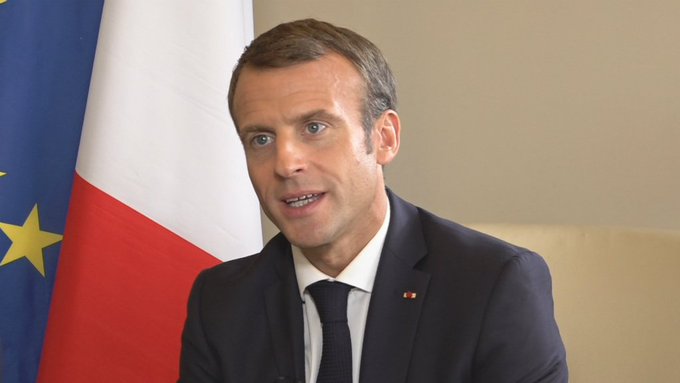
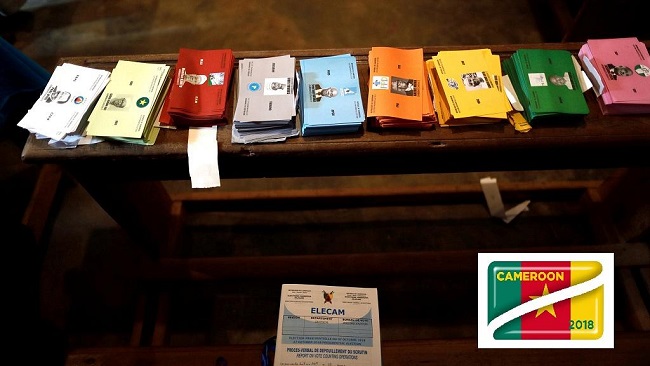
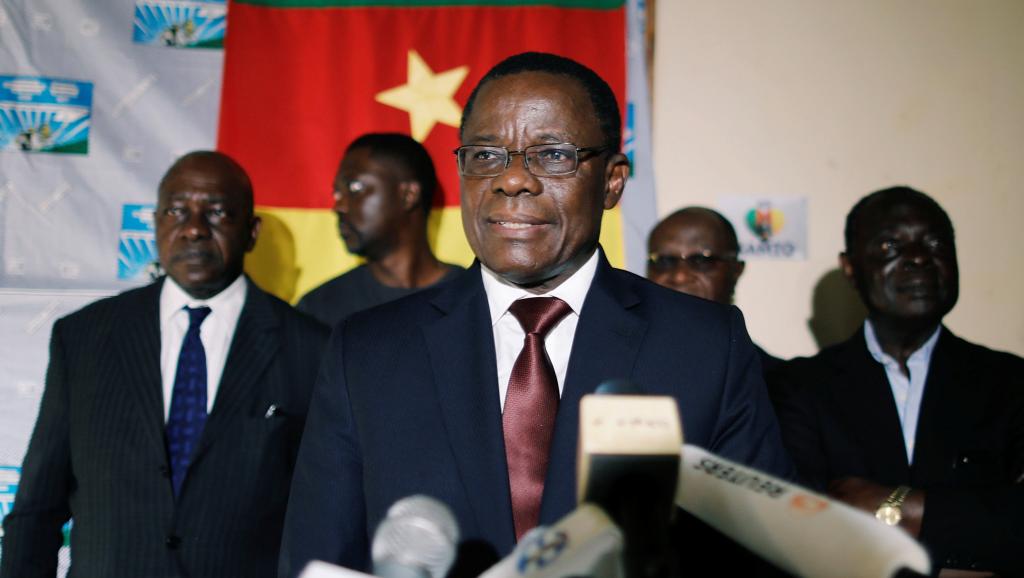
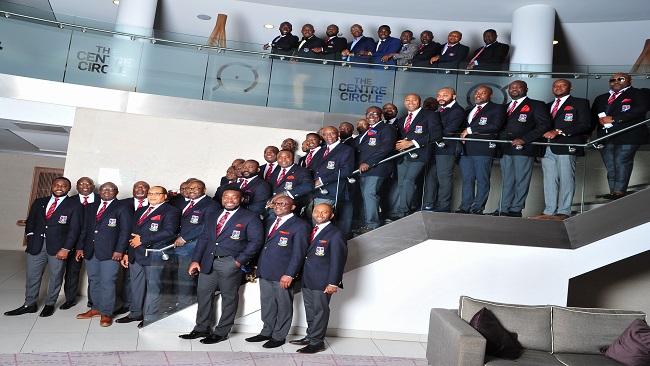

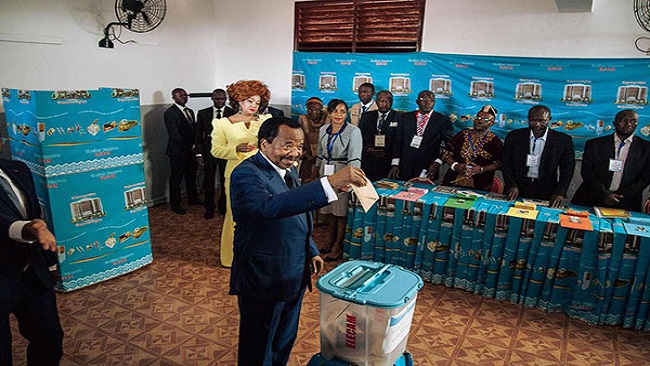
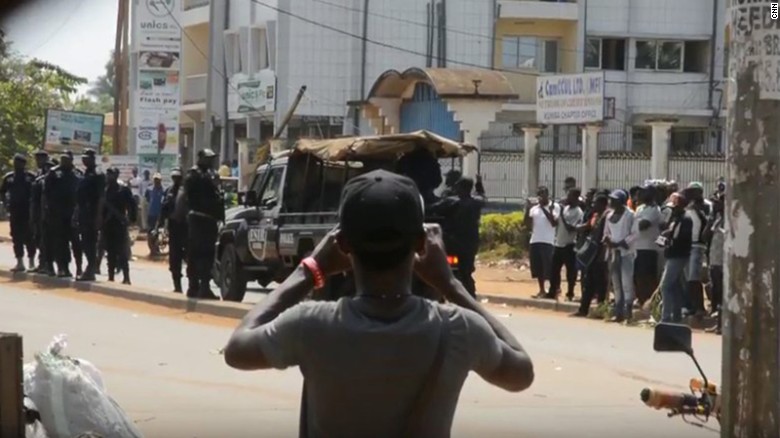

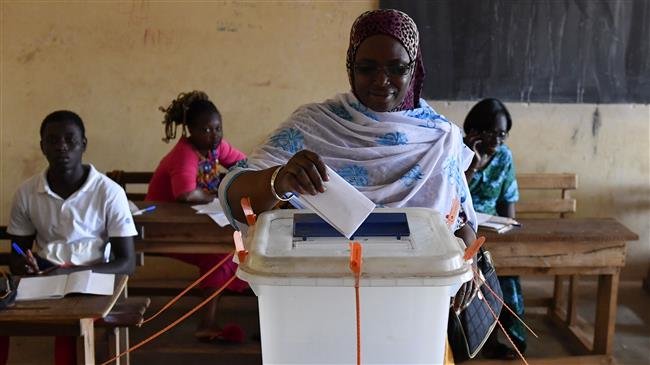



















15, October 2018
Leaked CPDM memo shows Biya tightening grip on Maurice Kamto 0
According to a leaked Cameroon government document, CPDM barons are planning to strictly control the activities of Prof Maurice Kamto, the man widely believed to have won the October 7 presidential elections including members of his coalition. The ruling Beti-Ewondo elites are also aiming to further militarise the nation’s capital before the official proclamation of the results.
Meanwhile, leading members of the Francophone dominated Cameroon opposition and civil society groups this week hinted Cameroon Concord News Group about widespread surveillance and intimidation tactics being used against Southern Cameroonians and people from the Western region which is the political base of the President-Elect, Maurice Kamto.
The internal memo, written by the Delegate-General for National Security, Martin Mbarga Nguele was leaked late this evening to our chief intelligence officer in Yaoundé and outlined plans for more than 300 officers to provide what the Biya regime intends to paint as a “protective custody” on Maurice Kamto, leader of the MRC party.
Prof Kamto was recently prevented from holding a press conference and many members of his campaign have been arrested on widely discredited claims that he declared himself winner of the October 7 presidential election.
While mainly detailing measures and tricks and action planned by the Biya regime to link the Kamto Campaign to terrorism, crime and social chaos, the document also mentions broader plans to crush the Southern Cameroons resistance.
The Francophone authorities are to strictly control activities of Bamilekes and Anglophone civil society organizations, Anglophone and Bamileke unions, Nigerians, former Anglophone military officers and the members of the Interim Government of the Federal Republic of Ambazonia, it read.
The document comes to light after the Maurice Kamto coalition won the presidential elections. The vote has been widely criticised as flawed. The ballot took place following a more than two years of intensified repression of Southern Cameroonians, Biya regime critics and independent media that has seen some 4000 Southern Cameroonians killed, several hundred jailed and some 50,000 living in refugees camps in neighboring Nigeria. There has since been an escalation in the surveillance of opposition groups and critics of the regime, sources said.
Cameroon government spies are currently standing outside Prof. Kamto’s residence and at his political headquarters disguised as news reporters or motorcycle taxi drivers. The Biya spies have been following everyone in the Kamto coalition in Douala, Yaounde and Bafoussam.
There are widespread complaints of police disrupting or shutting down meetings involving the Maurice Kamto Campaign. Recently, Senior Divisional Officers have started demanding that press conferences and political meetings should be banned.
A source, who requested anonymity for fear of reprisals, told this reporter that they had heard from sources in Cameroon’s secret service that a meeting had been pencilled in for the end of this week to draw up a list of top Bamilekes to be monitored by the regime. The Betis have recruited many social media gurus to help in the fight to guarantee Biya’s continued stay in power.
The CPDM regime is mixing traditional techniques such as physical surveillance and intimidation with modern approaches including the use of digital tools in CAMTEL, the Ministry of Post and Telecom and the judicial system to silence Kamto and his coalition and by extrapolation, the Cameroonian people. Any hopes that space for critical voices would re-emerge after the October 7th election had been quashed.
The constant monitoring, intimidation and harassment of religious leaders and the corresponding lack of transparency and accountability when it comes to attacks against opposition figures has created an atmosphere of fear and insecurity.
By Soter Tarh Agbaw-Ebai